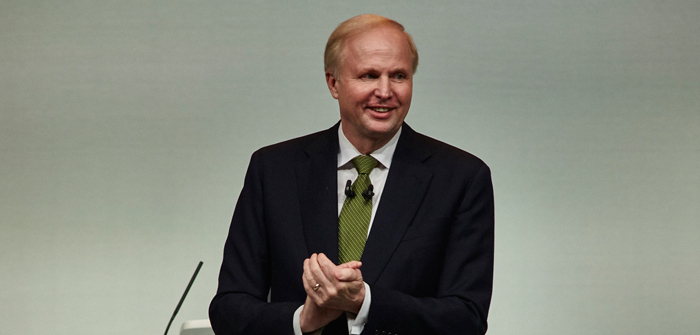
BP said yesterday that it had returned to the black in a first half of 2017 marked by production start-up from the Quad 204 project, west of Shetland.
Quad 204, one of the largest field redevelopments in North Sea history, was the third of seven major projects BP plans to bring on stream this year.
Production started up in May, meaning it only added about six weeks’ worth of production to BP’s first-half total, but it will ramp up over the coming months.
It is expected to deliver 450million barrels of oil equivalent (boe) from the Schiehallion and Loyal fields through to 2035 and beyond.
However, the firm still out performed by its peers, according analysts.
BP’s first half upstream production was 6% higher than in 2016, while unit costs dropped 18% year-on-year.
The firm notched up pre-tax profits of £2.3billion, rebounding from losses of £3.2billion a year ago, while revenues increased by 31.6% to £86billion.
BP published its first-half results in the week after a host of oil majors signalled a change in fortunes by posting vastly improved figures.
Shell’s first half pre-tax profits came in at £4.5billion, compared to last year’s £243million.
BP chief executive Bob Dudley said work was on-going “to position BP for the new oil price environment”, with a focus on costs, efficiency and disciplined spending.
Mr Dudley said: “We delivered strong operational performance in the first half of 2017 and have considerable strategic momentum coming into the rest of the year and 2018, with rising production from our new upstream projects and marketing growth in the downstream.”
Biraj Borkhataria, analyst at RBC Europe, said: “BP has underperformed its peers recently and we would expect some of that underperformance to reverse in the near term.”
On a less positive note, BP revealed net debts of £30.1billion at June 30, up from £23.4billion a year ago.
However, BP chief financial officer Brian Gilvary said the mounting debt pile was “no cause for concern”.
Mr Gilvary said: “Our average cost of borrowing is just over 2%, so it’s not that expensive to carry that level of debt.”
He said lowering debt was not currently high on BP’s agenda, but would climb the list of priorities in time.
BP made liability payments totalling £3.3billion for the 2010 Gulf of Mexico oil spill during the first half. The full-year figure is expected to reach between £3.4billion and £4.2billion.
Nicholas Hyett, equity analyst at Hargreaves Lansdown, said the Deepwater Horizon disaster was still a problem for BP.
He said: “Were it not for the Deepwater Horizon oil spill more than seven years ago, BP would be in pretty good shape right now.
“Despite the tough oil price environment, cash flows would be comfortably ahead of capex and dividend expenses, and the group is still managing to spend a reasonable amount on developing new fields.”

